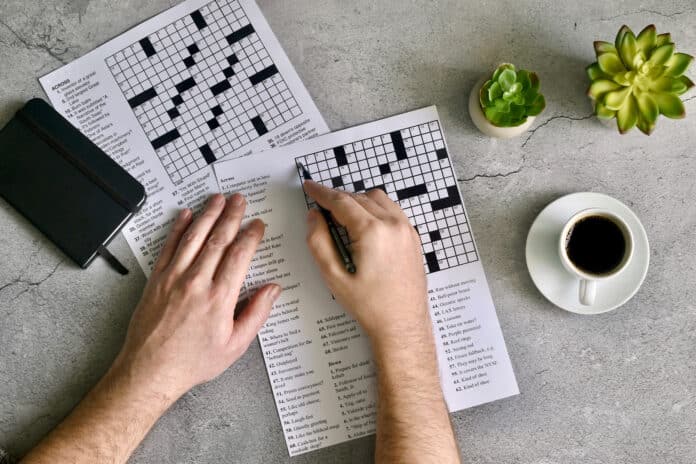The loss of cognitive function affects the physical and mental health of individuals with dementia and the well-being of their carers and families. No current treatment approach for dementia is entirely effective. Therefore, identifying new strategies to prevent or delay dementia onset among older individuals is a priority.
A new study investigated the association of leisure activities and social networks with dementia risk among older individuals.
Using the well-established ASPREE dataset, the Monash University study discovered that older adults who regularly engaged in literacy and mental acuity tasks, including taking classes, journaling, and playing crossword puzzles, were 9-11% less likely to develop dementia than their contemporaries. Crafting and other creative activities reduced risk by 7%.
In other words, activities such as using computers, writing, and playing puzzles or games are more strongly associated with avoiding dementia than crafting activities like knitting, painting, or being a social butterfly. The study could help older individuals and aged care professionals plan more targeted approaches to reducing dementia risk.
The study’s senior author, Associate Professor Joanne Ryan, from the School of Public Health and Preventive Medicine, says:
“Identifying strategies to prevent or delay dementia is a huge global priority. We had a unique opportunity to close a gap in knowledge by investigating a broad range of lifestyle enrichment activities that older people often undertake and assess which of those were most strongly aligned with avoiding dementia.”
The data for the study was gathered from 10,318 Australians aged 70 and older participating in the ASPREE project and the ALSOP (ASPREE Longitudinal Study of Older Persons) sub-study. No significant variation was found between men and women, who were all without dementia at enrolment into ASPREE and underwent standardized cognitive measures over ten years. Participants self-reported social and leisure activities in ALSOP questionnaires.
Previous studies in neurobiology may shed some light on the mechanisms underlying the findings.
Critical thinking, logical reasoning, and social contact are all components of many active literacy and mental acuity activities. By boosting neuronal and synaptic connections and boosting the effectiveness of brain networks, these promote resilience against brain illnesses.
Attending educational classes, using a computer, and writing are all literacy-related activities that demand the processing and storage of new information, which slows brain aging and guards against dementia. A wide range of cognitive processes are utilized during the challenging writing process.
Critical thinking, logical reasoning, and social contact are all components of many active literacy and mental acuity activities. By boosting neuronal and synaptic connections and boosting the effectiveness of brain networks, these promote resilience against brain illnesses.
Attending educational classes, using a computer, and writing are all literacy-related activities that demand the processing and storage of new information, which slows brain aging and guards against dementia. A wide range of cognitive processes are utilized during the challenging writing process.
Adopting new technologies is a cognitively hard process since using a computer activates several brain regions that must work together with the motor abilities required for typing.
Playing games, cards, chess, and crossword puzzles are all examples of mental pursuits that frequently include social interaction. They occasionally entail competition, intricate strategy, and problem-solving.
Various cognitive processes are frequently used, such as episodic memory, visuospatial skills, computation, executive function, attention and focus, linguistic abilities, and semantic memory.
Associate Professor Ryan said, “I think what our results tell us is that active manipulation of previously stored knowledge may play a greater role in dementia risk reduction than more passive recreational activities. Keeping the mind active and challenged may be particularly important.”
The findings do not entirely disprove the possibility that people attracted to these pastimes have particular personality qualities that are advantageous in other ways or that they consistently engage in healthier behaviors.
Thus, notwithstanding any structural brain changes brought on by cognitive training, it is still challenging to demonstrate the extent to which specific pastimes may be included in dementia prevention programs.
Even while it didn’t correlate with dementia risk in the study, social interaction may still be crucial to cognitive health and mental well-being. The individuals were in good cognitive health and were probably already engaged in social activities. Thus, the cognitive advantages of strong social networks may not have been as apparent in this group as they would have been in the general population.
Associate Professor Ryan said, “While engaging in literacy and mental acuity activities may not be a magic pill to avoid dementia, if that was your goal and you had to choose, our research certainly suggests these are the activities most likely to support prolonged good cognitive health.”
Journal Reference:
- Zimu Wu, Danushika H. Pandigama, Jo Wrigglesworth, et al. Lifestyle Enrichment in Later Life and Its Association With Dementia Risk. JAMA Network Open (2023). DOI: 10.1001/jamanetworkopen.2023.23690
